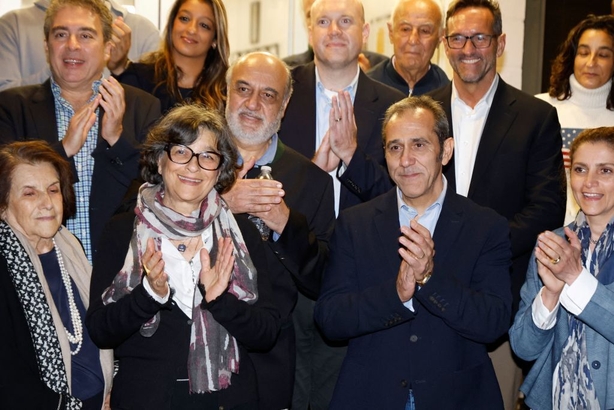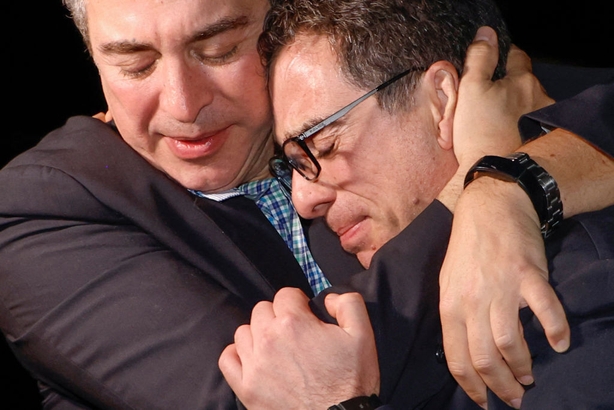Five Americans freed by Iran in a high-stakes prisoner swap have landed back in the United States to a joyous reunion with family members.
The five arrived from Qatar on an executive jet at a military airfield in Fort Belvoir southwest of Washington DC.
Relatives waved US flags and hugged them as they disembarked from the aircraft, then posed for a group photograph, grinning widely.
"Welcome home," National Security Advisor Jake Sullivan posted on social media.
The former prisoners, including one held for eight years, were part of a rare prisoner exchange between the US and Iran, a deal that included the unfreezing of $6 billion (€5.6 billion), frozen by US ally South Korea.
The swap marked a slight thaw in relations between the two countries over a host of issues, including Iran's advances in its nuclear programme, although some observers urged caution in viewing the release as a sign of change.
The five arrived on a flight from the Gulf state of Qatar, which helped facilitate the exchange, negotiated over several months. They will receive a medical checkup in the Washington area.
President Joe Biden's administration has rejected criticism at home that it was paying "ransom," insisting the money will be used only for humanitarian purposes, with a threat to refreeze the funds if not.
But Iran has insisted it has full access.
The money "cruelly blocked until now and currently in the possession of the Islamic republic belongs to the people (of Iran) and we will use them to meet the people's needs," President Ebrahim Raisi said.

Mr Raisi and Mr Biden are among world leaders gathered in New York for the United Nations General Assembly but they are not scheduled to meet.
In his speech to the assembly, President Biden said the US would work with allies to "address Iran's destabilising activities that threaten regional and global security."
The US remains "steadfast in our commitment that Iran must never acquire a nuclear weapon," he added.
Secretary of State Antony Blinken said the prisoners issue was separate to talks on reviving a 2015 nuclear deal scrapped by former president Donald Trump.
One of the freed prisoners praised Mr Biden for ignoring the domestic political backlash and taking the "incredibly difficult decisions" that freed them.
"Thank you, President Biden, for ultimately putting the lives of American citizens above politics," Siamak Namazi, a businessman held by Iran since 2015, said in a statement.

Other freed prisoners include wildlife conservationist Morad Tahbaz and venture capitalist Emad Shargi, both of whom were held at the notorious Evin Prison but placed under house arrest last month.
Two other US prisoners involved in the swap have not been publicly identified. All are Iranian-Americans.
The five Iranian prisoners released by the US were convicted or charged with nonviolent crimes, with one already set to be released soon, officials said.
Some observers viewed the prisoner exchange cautiously.
"We are not naive," European Council President Charles Michel said.
"We can also observe the very brutal repression" in Iran, he said, including "the use of kidnappings by the Iranian authorities to put pressure on some governments including in the EU."
"We do not underestimate the level of tensions and difficulties."
France, which backs the nuclear agreement and considers four of its nationals to be arbitrarily detained by Iran, warned against drawing a link.
"I think we need to be extremely careful to distinguish this from the nuclear issue," French Foreign Minister Catherine Colonna said.

